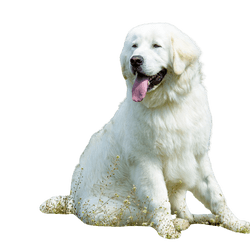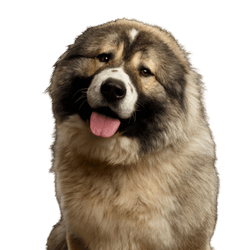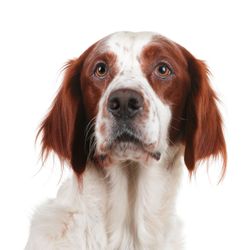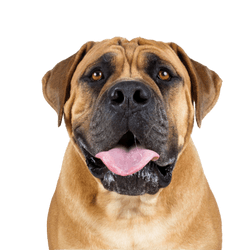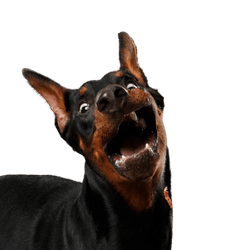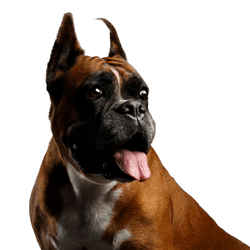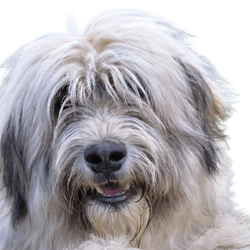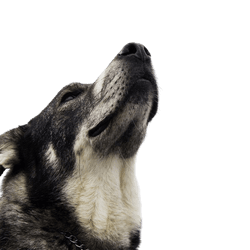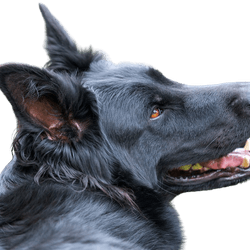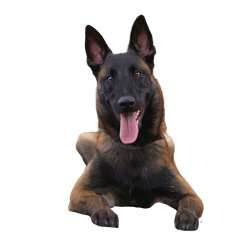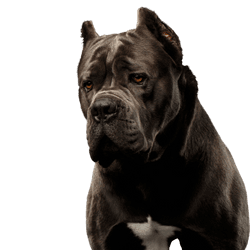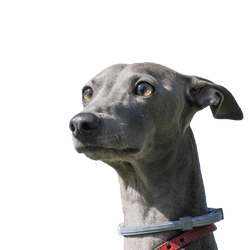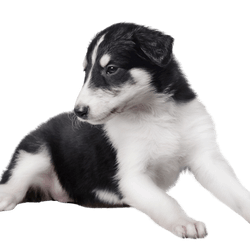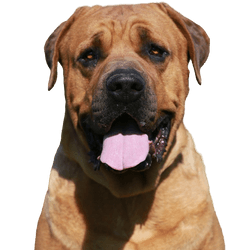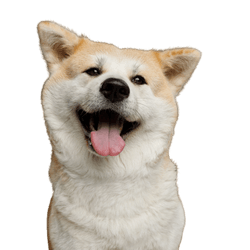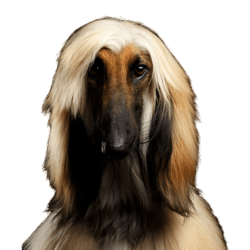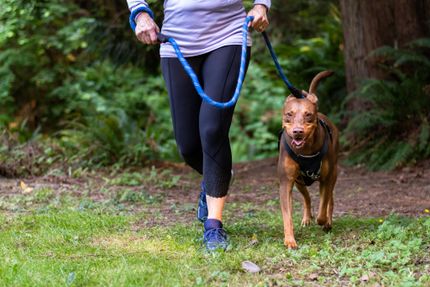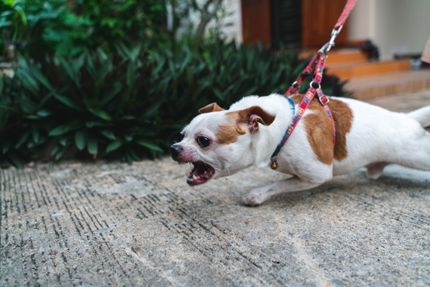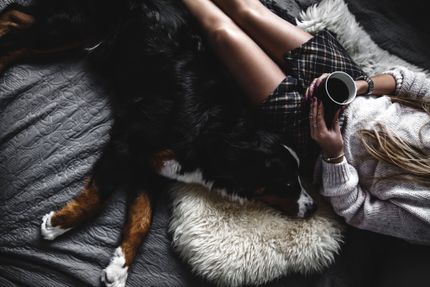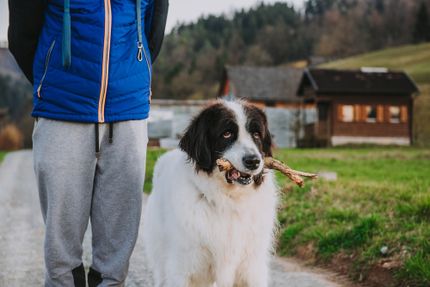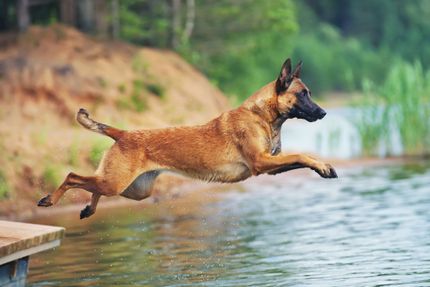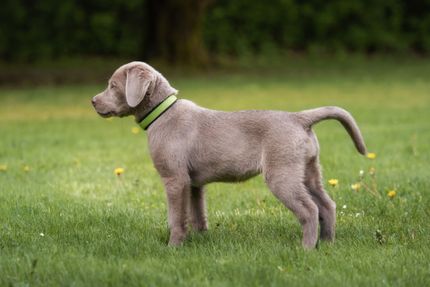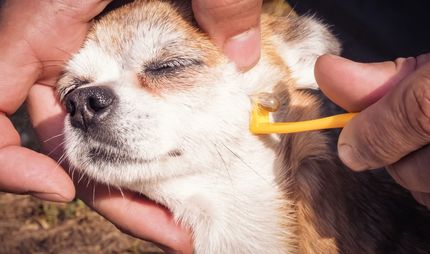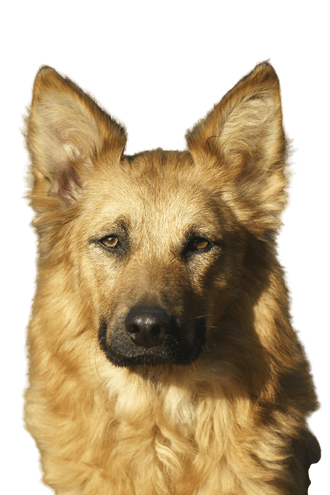
Harzer Fuchs Breed description: Character & Co
Harzer Fuchs
Facts & Origin
Origin and history of the German herding dog Harzer dog (Harzer Fuchs)
The Harzer dog belongs to the old German herding dogs. The breed is neither recognised by the FCI nor the VDH. As the name easily indicates, it originates from the German Harz region at the intersection of Lower Saxony, Saxony-Anhalt and Thuringia. From the beginning its task there was the herding of cows (especially the Harz Red Cattle) and later also of sheep. The breed is still bred sporadically today, but is listed as an endangered species on the Red List of the Society for the Preservation of Old and Endangered Domestic Animal Breeds (GEH). This is mainly due to the fact that the profession of shepherding is slowly dying out and the Harzer Fuchs with them. In recent times, the Harzer Fuchs dog is also being kept as a companion dog again and is enjoying increasing popularity as such. This is perhaps also due to its pretty red coat colour.
Breed description and character
The Harzer Fuchs is a working dog. As such, he was used for herding cows around the clock, independent of the herdsmen. This task meant that the dog was always accustomed to working independently and was therefore able to develop a high degree of self-confidence. Harzer Fuchs dogs are very sporty dogs that need to be kept busy both physically and mentally. These clever and sociable, sometimes even playful dogs like to be with people and behave in a fundamentally loyal but never submissive manner towards their owners.
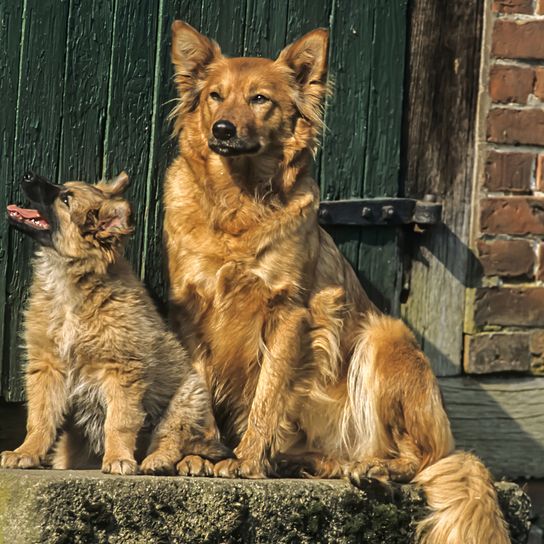
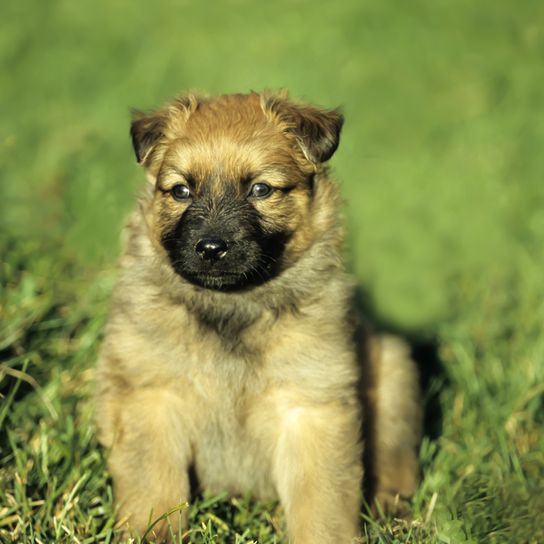
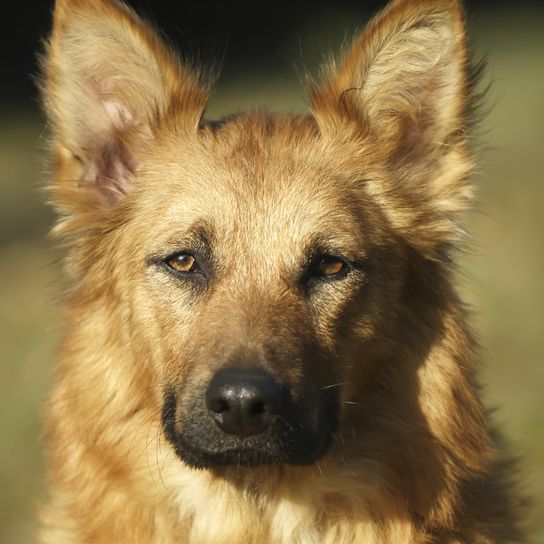
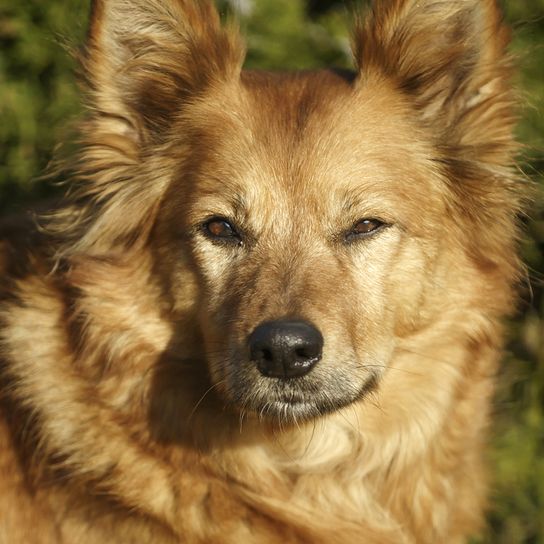
| Alternate Name | - |
| Origin | Germany |
| Life expectancy | 10 - 14 years |
| Care requirements | high-maintenance |
| Activity level | high |
| FCI group | not recognised |
| AKC group | not recognised |
| KC group | not recognised |
Attitude, character and temperament of the breed
Harzer Fuchs dogs are only suitable for families under certain conditions. Although they are considered to be fond of children, caution is required, especially when dealing with small children. In order to integrate the dogs into a family without any problems arising, there is a lot of preparatory work to be done beforehand. This includes consistent, lifelong training starting at puppy age. If these conditions are not met, the dog will test its owner's patience time and time again, since it is not a particularly obedient dog by nature. Only by stating clear rules will it be possible to teach this self-confident dog basic obedience. Dog schools can be of help here, which is also important for the socialisation with other dogs. The top priority in keeping and training is a healthy balance between activities and resting periods.
Bored and underchallenged dogs of this breed often react with
- undesirable behavioural problems,
- like licking wounds,
- barking and
- other nervous disorders and then cause their owners problems.
If the dog is kept in an apartment it is recommended to regularly do sports with your dog, something that challenges the dog both physically and mentally. On the other hand, if the dog is not working to its full capacity, psychological problems such as hyperactivity and nervousness are often the result.
Character
Usage
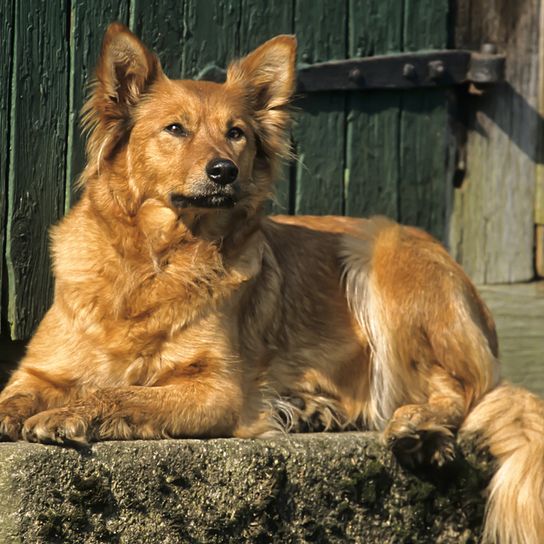
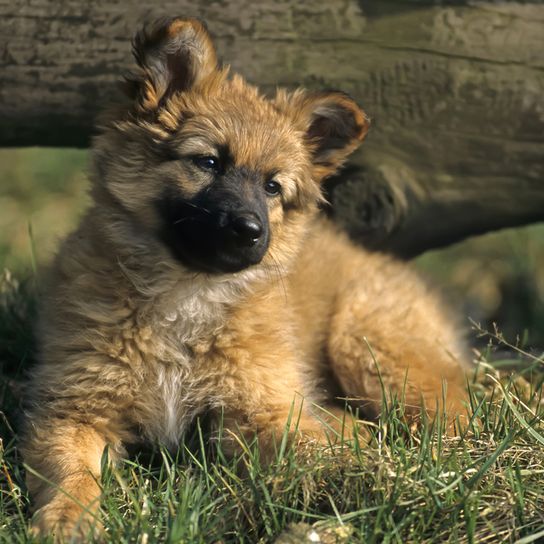

Health and breeding information
Regarding nutrition, you should pay attention to a higher meat content. It doesn't make a difference whether this given to them in the form of wet, dry or mixed food. Bones made of cowhide are suitable as a small treat in between meals, which are also useful for cleaning their teeth. The active dogs should take a rest after feeding, because otherwise they tend to develop stomach torsions, just like many other dogs. This dangerous disease is particularly promoted by them doing intensive exercise and playing around after feeding.
Typical diseases of the Harzer Fuchs
The breed is very healthy and not prone to developing specific diseases. Since the dogs were bred exclusively as herding dogs and external characteristics were not important, no overbreeding has been taking place. By crossing the dog with other breeds of similar type, there still exists a healthy and varied gene pool. Genetic diseases are therefore practically non-existent. But even this robust breed is not completely immune to typical dog diseases. In particular, hip diseases, such as hip dysplasia or joint problems, can cause the animals problems. With a balanced diet rich in vitamins and minerals and plenty of exercise, however, dogs generally remain fit well into their old age.
Interesting facts about the Harzer Fuchs breed
There are not many breeders of this old German herding dog breed anymore. Mainly in the east of Germany there are still breeders who, with the help of state subsidies and support of the Arbeitsgemeinschaft zur Zucht altdeutscher Hütehunde (AAH), want to preserve this type of dog by performing targeted breeding and saving it from extinction. The safest way to buy a Harzer Fuchs dog is therefore through the AHH. Here you can easily buy a Harzer Fuchs puppy and at the same time contribute to the surviving of these great dogs. If you are generally interested in old German herding dogs, there are other breeds similar to the Harzer Fuchs:
- Gelbbacke
- Altdeutscher Tiger
- Sheep Poodle
All these breeds are facing extinction.


The most striking breed characteristic of these dogs is their "fox-coloured" coat. But the coat colours can vary from reddish to cream to red or sooty red. The Harzer Fuchs Dog's long sticky coat with its luxuriant dense undercoat is weatherproof, which was helpful for their original purpose. The slender but muscular dogs reach a withers height of about 50 to 60 cm and a weight of 24 - 28 kg. Breeding types include dogs with tilted ears as well as ones with stood-up ears. Their life expectancy is 11 - 14 years.
Care of the Fuchs
They are low-maintenance dogs. It is sufficient to brush the coat regularly. In spring and autumn, when the dog changes its coat, it is best to brush it daily. In the case of breeding forms with drooping ears, the ears should be cleaned regularly to prevent inflammation. Also the length of the claws needs to be checked from time to time.
| Fur length | long |
| Fur | - |
| Ear shape | - |
| Tail | fanned out |
| Anatomy | sporty, square |
| Size ♀ | 50 - 60 cm |
| Weight ♀ | 24 - 28 kg |
| Size ♂ | 50 - 60 cm |
| Weight ♂ | 24 - 28 kg |
| Suitable For | - |
Colors
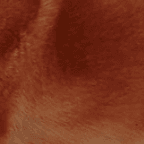




Other large dogs
Useful Articles
You can find articles that might interest you in the dogbible blog to match your favorite breed.
Visit our magazineto stay up to date on dog trends.
To find out more, view our Privacy Policy
Find here the breed that suits you and find out what character traits it has. Here you can also learn more about the origin, size and weight of your favorite breeds.
Matching your favorite breed, you'll find articles that might interest you on the dogbible dog blog.
Stomach torsion in dogs - recognising signs and providing first aid when gastritis
5 reasons why it can be that your dog trembles
Dog Eats Dirt: We Know Why he eats soil
Designer dogs - These "breeds" are particularly popular and originated from two different breeds
